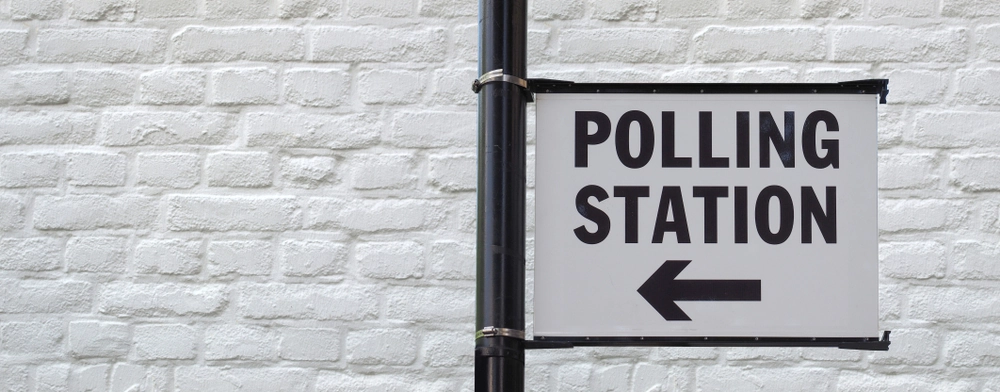
The practical considerations for importers (and EU-based exporters)

Following the UK's departure from the European Union, there have been some challenges for both importers and exporters (in both directions).
Economic operators on both sides of the Channel were relieved when a free trade and co-operation agreement was ratified by governments on both sides prior to the deadline of 31st December 2020. The agreement ensures that economic operators have quota and tariff free access to each other's markets subject to the all-important 'Rules of Origin.'
A product will be considered "originating" if it is "wholly obtained" in the EU/Great Britain (GB); if it is produced in the EU/GB exclusively from originating materials, or if the non-originating materials incorporated in it satisfy certain rules.
The question for clients is: Which rules and regulations apply to my business and my transactions?
Importers in GB and EU-based exporters will need to consider:
- What are the rules for placing a product on the market? (Product Rules).
- What happens at the UK border? (Customs Rules).
The nature and extent of a business's obligations depends on whether they are the manufacturer, importer or distributor of the product.
This note highlights in general terms the steps which should be taken by exporters and importers of goods into GB to minimise any disruption at the UK border.
For specific advice, covering what your business needs to do, please contact one of our lawyers within the International and Regulatory teams, who have worked closely with businesses to help them navigate their way through the relevant rules and regulations.
Manufacturers
Europe-wide product safety rules and regulations have largely been incorporated into domestic law in the UK, meaning the implications of Brexit for EU-based exporters are less likely to cause problems.
Some mechanisms should make regulatory compliance easier, especially for pharmaceuticals, automobiles, wine, chemicals and organic products. Mutual recognition has been agreed for certification of good manufacturing practice in respect of pharmaceuticals and for automobile approvals.
However, the regulatory framework is highly product-specific.
The Product Rules do vary according to whether the goods are 'old approach goods' such as chemicals or medicines, or 'new approach goods.' Some goods, such as medical devices, have their own regulatory framework.
Most goods will fall under the 'new approach goods' heading.
A manufacturer (either in GB or exporting to GB) seeking to placing products on the GB market can, in certain instances, "self-declare" that the product complies with EU-wide standards having regard to the technical specification for those products set out in specific EU directives.
For some products however, there is a requirement that a notifying body is engaged in order to conduct the conformity assessment process. If you are placing goods on the GB market and legislation requires an external body to be part of the conformity assessment process, then your business will need to make the appropriate arrangements.
The EU-wide 'CE' marking will still be acceptable in GB until 1st January 2022 and can be used where the manufacturer completes a self-declaration, or an EU-based notifying body has completed the requisite assessment. It may be for instance that your business has transferred all relevant product files to EU-recognised notifying bodies.
However, businesses will need to ensure the UKCA marking is used from 1 January 2021 where product specific legislation mandates such external conformity assessment and such assessment has been completed through a UK-based notifying body. It is permissible to affix both 'CE' and 'UKCA' markings, provided that one does not obscure the other.
In our note on exports from GB we explain the need for GB-based manufacturers to ensure there is an 'economic presence within the Union' for overseas sales, other than to the end user. The GB framework does not recognise authorised representatives and responsible persons based in the EU. So, if your business needs to (or chooses to) use an authorised representative or responsible person, they will need to be based in GB for products being placed on the GB market.
Indeed, from 16th July the EU Regulation on Market Surveillance and Compliance of Products (2019/1020) came into force in Northern Ireland. Article 4 requires that for certain products to be placed on the EU (or NI) market, (such as machinery, construction products, low voltage electrical equipment), an economic operator responsible for compliance must be established in the EU (or NI) to fulfil certain compliance tasks. The responsible economic operator can be a manufacturer, importer, authorised representative, or a fulfilment service provider but in all cases must be established in the EU (or NI). The name, registered trade name or registered trademark, and contact details (including the postal address) of the responsible economic operator must be indicated on the product or on its packaging, the parcel or an accompanying document.
Next steps
We would advise importers to consider taking the following measures:
- Review your product marking, labelling, and packaging.
- Make arrangements for the appointment of a UK-based 'notifying body' where necessary.
- Consider whether an authorised representative is a sensible or required additional step in light of all legislative developments.
Manufacturers, Exporters and Importers
If your business is exporting to the GB then you will need to put in place arrangements that enable these goods to clear the UK border.
Exporters from the EU and importers in GB will require an Economic Operators Registration and Identification (EORI) number.
The first questions for a GB-based business involved in this process seems an obvious one: is your business going to be importing any goods?
You are an importer if your business is the first one bringing goods from outside GB and placing them on the market in GB.
If someone has already placed a good on the GB market before you sell it in GB - or if the manufacturer has appointed another GB-based person to carry out importer duties - you will remain a distributor and will not have any additional responsibilities.
The UK Government has also sought to phase in the various regulatory requirements for clearing the UK border. In theory, this should make life more straightforward for businesses importing goods into GB over time.
As the UK Border Operating Model makes clear, traders importing non-controlled goods (covering everything from clothes to electronics) will need to prepare for basic customs requirements, such as keeping sufficient records of imported goods.
Importers will also need to consider how they account for and pay VAT on imported goods. Third parties can be used, but the use of agents is not without risk and may increase the overall administrative burden.
For goods imported from the EU to GB and GB to EU, traders do not need suppliers’ declarations to be in place at the time the goods are exported until 31 December 2021.
UK Safety and Security declarations (S and S), designed to provide re-assurance that goods do not pose a material threat to safety or security, were not required on imports to GB from the EU for the first six months but are now required.
Full customs declarations are needed for controlled goods and excise goods such as alcohol and tobacco products. Such goods are also likely to require import licences.
There will also be physical checks at the point of destination or other approved premises on all high-risk live animals and high-priority plants and plant products, and a requirement to obtain the relevant documentation and pre-notify for certain movements; but there is no requirement for such goods to enter GB via a point of entry with an appropriate Border Control Post (BCP).
Traders importing and exporting goods using the Common Transit Convention will need to follow all the transit procedures; these will not be introduced in stages.
The Goods Vehicle Movement Service (GVMS) is in operation, but only in respect of transit movements.
More recent developments
From April, all products of animal origin (POAO) – for example meat, honey, milk or egg products – and all regulated plants and plant products will require pre-notification and the relevant health documentation.
From July, traders moving any goods have to make full customs declarations at the point of entry and pay relevant tariffs. Indeed, for commodities subject to sanitary and phytosanitary (SPS) controls, these must arrive at an established point of entry with an appropriate BCP and there will be an increase in physical checks and the taking of samples.
Importers
In addition to navigating the Customs Rules, importers will need to make sure that:
- Goods are labelled with their company’s details, including their company’s name and a contact address. Until 31 December 2022 this can be provided on the accompanying documentation rather than on the good itself.
- After 31 December 2022, the details must be affixed to the product or, in circumstances where the legislation allows, on the packaging or an accompanying document.
- The correct conformity assessment procedures have been carried out and that goods have the correct conformity markings.
- The manufacturer has drawn up the correct technical documentation and complied with their labelling requirements.
- They maintain a copy of the declaration of conformity for a period of 10 years.
- Goods conform with the relevant essential requirements.
When navigating the Customs Rules:
- Make sure your business obtains the appropriate EORI number.
- Make sure mutual responsibilities with all trading partners including Agents are well understood.
- Make sure your business has the correct paperwork for the type of goods they are trading having regard to the above rules and regulations.
- Consider arrangements to defer customs duties where possible and where part of a commercial strategy.
- Remember that plans to accommodate the additional controls may be in place having regard to the specific products being traded.
Our commentary
The legal framework is changing; whilst the product standards remain broadly aligned, it is imperative for exporters to GB to pay close attention to relevant product standard and safety rules. Practical considerations to ensure that goods move swiftly through the UK border are likely to be the most important area for consideration and the phased approach to border obligations, activities and requirements means that close monitoring of the rules is essential.













